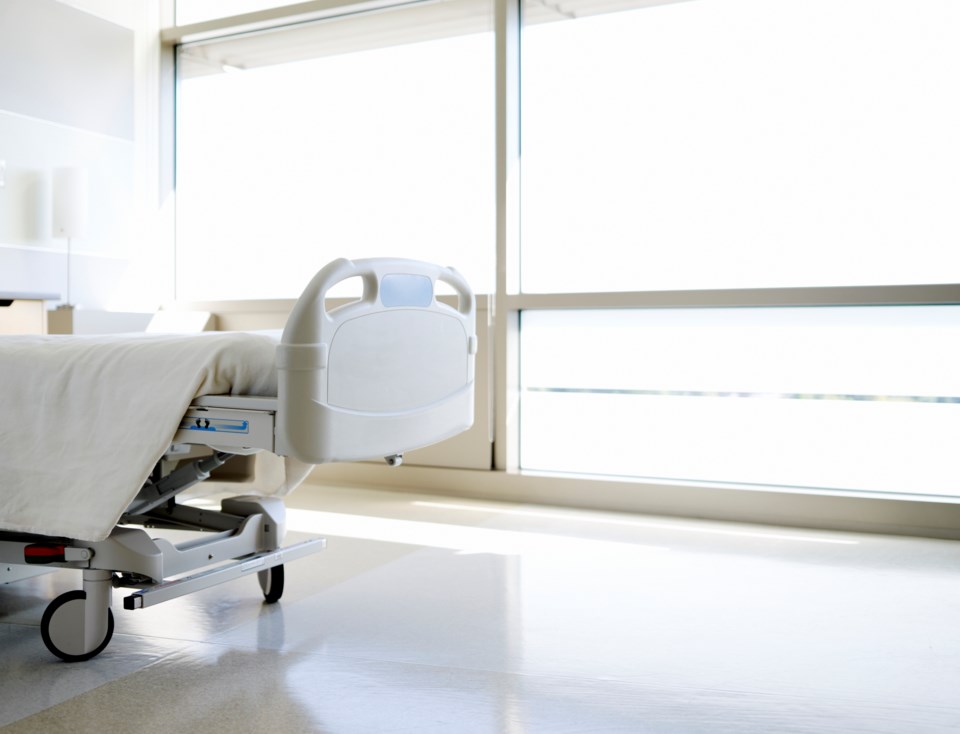Some day when you least expect it, you may find yourself in a strange place in clothes and a bed that are not yours.
You see other visitors dressed like you, some with the front of their bodies covered better than their backs. Most of them are lying in similar beds, some with devices attached to their faces, arms and chests.
Outside your room, you catch a glimpse of the inhabitants of this strange place all dressed the same in blue or green pajama-like outfits. They speak to each other in a different language that sounds a little like English but you don't recognize many of the words. They are writing on the pages of binders or on computers. You’re not the paranoid type but you have a suspicion that they are talking and writing about you and there is a binder with your name on it.
No. You're not in a foreign country, and you haven't been abducted by aliens.
You are a patient. Welcome to Hospital Land.
Being a patient in the hospital can be a disorienting experience. The transient confusion or delirium that older patients may experience can be triggered by illness but is certainly exacerbated by being in a completely unfamiliar environment.
But even younger patients can feel unsettled. You're not quite sure what you're allowed to do on your own and where you are free to go. When I was 11 years old, I stayed at Burnaby Hospital for a few weeks with a painful flare up of rheumatoid arthritis. It was at first a stressful experience but the kind care of my nurses and doctors inspired me to work in healthcare one day.
To make sure you're prepared for the day you become a hospital patient, here are some tips to maintain your independence and sense of control and get the information you need about your condition and its treatment.
Like the Lonely Planet guides for travellers, consider this the Lonely Patient's Guide to Hospital Land.
Your 'travel' documents
You don't need your passport - just your CareCard or PHN (personal health number) and some essential information.
I encourage everyone to keep a one-page summary of your medical history. This will be invaluable if you ever have to go to the ER or an urgent care or walk-in clinic. It should include a list of your allergies, chronic conditions such as high blood pressure or diabetes, past illnesses and operations, and your family medical history.
Bring a list of your medications, including the full name of each drug, the dose (i.e. 325 mg) and the directions (i.e. one tablet twice daily).
What to pack
For comfort: ear plugs, music with earphones, reading material, word puzzles, an eye mask for sleeping, a toothbrush and toothpaste, warm socks, non-slip slippers and a sweater.
To keep you oriented: a calendar and a quiet, inexpensive clock.
For communication: a pad of paper, pens, and if you need them, your glasses, hearing aids and teeth.
What NOT to bring: expensive jewellery or electronic devices, wallets, purses, credit cards, your nicest clothes and shoes or other prized possessions.
Don't bother with perfume or cologne. Your neighbours may have allergies and respiratory problems, and you're more likely to pick up an infection rather than your future romantic partner.
Three keys to a Better Hospital Stay
- Stay informed and in control
There are four things you need to know about every procedure or treatment (including surgery, medications and investigations): a. the purpose or reason for the procedure or treatment; b. common side effects or risks; c. serious side effects or risks; and d. alternatives or other treatment choices.
- Know your team
When they are all dressed in scrubs and lab coats, all health professionals and support staff look alike. Ask for each person's name and role (e.g. nurse, respiratory technician, dietitian, physiotherapist, speech language therapist or specialty - family physician, hospitalist, surgeon or internist).
Most importantly, ask who your attending or most responsible physician is. This is the quarterback who is overseeing your care in the hospital.
Take a look at your wrist band now that you know you're not vacationing at an all-inclusive resort. It usually has the name of your attending physician. This is the person to whom you should direct your questions.
- Set up a channel for communication
Prepare your list of questions. Key questions to ask your attending physician: What is the plan? What is the working diagnosis? What is the schedule of tests or procedures? What are the results of those tests? When is your expected date of discharge?
This information could be shared on a white board in your room or a large pad of paper at your bedside. If you have a family physician, make sure he or she knows you are in hospital and that reports are sent to that office. He or she can provide important medical information to your hospital care team.
In an upcoming column, I’ll talk about advance medical directives including the MOST form used in all our hospitals to indicate what procedures and level of care you want and those you don’t want.
Dr. Davidicus Wong is a Burnaby family physician and has written for the NOW since 1991.
This Thursday, Jan. 18, Dr. Wong be giving a free online talk from 7 to 8:30 p.m.
The topic: The Lonely Patient’s Guide to Hospital Land: Making the Most of Your Hospital Visit. It’s part of the Burnaby Division of Family Practice’s Empowering Patients health education program.
To register, email Leona at [email protected] or call 604-259-4450. If you aren’t able to make it to my talk, you’ll find videos and my slides on this and my other sessions on health and wellbeing at https://divisionsbc.ca/burnaby/for-patients/empowering-patients.



